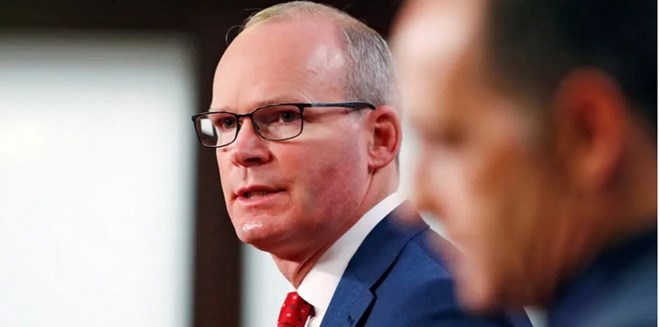
Friday November 26, 2021

Ethiopia’s government is seemingly exacting revenge on Western countries that ordered its citizens out by demanding that some of their diplomats leave too.
And it started with Ireland, where Ethiopia earlier this year closed its embassy, citing financial constraints. On Wednesday, Addis Ababa ordered four of six Irish diplomats based in Ethiopia to leave.
Ireland suggested the diplomats had been penalised for its stance on the conflict in Tigray, where the envoys have accused Addis Ababa of deliberately starving people.
eEthiopia, however, suggested the decision was reached as a protest.
“We are recently witnessing a dumbfounding orchestra. Some of our partners are busy trumping up an “evacuate soon” mantra feigning they really are panicked,” said Redwan Hussien, Ethiopia’s state minister for political and economic diplomacy.
“When we ask them to even partially leave, they begin to hastily lament that it's too soon and unfortunate.”
Humanitarian blockade
Ireland, a non-permanent member of the UN Security Council, has been vocal against alleged atrocities in Ethiopia, mostly chastising the Ethiopian and Eritrean governments for creating a humanitarian blockade in Tigray.
The Irish government claimed this stance is the reason their diplomats were being asked to leave by the start of next week.
“The authorities indicated that the decision to scale down the size of our embassy was due to the positions Ireland has articulated internationally, including at the UN Security Council, on the ongoing conflict and humanitarian crisis in Ethiopia” said Irish Foreign Minister Simon Coveney, who indicated their position was informed by the European Union stand on Ethiopia.
“Ireland fully supports the role of the African Union in seeking a peaceful solution to the conflict, including through the work of its special envoy, former Nigerian President Olusegun Obasanjo. We are committed to the sovereignty and territorial integrity of Ethiopia” Simon added.
In September, Ethiopia closed several embassies around the world, including in Algeria and Ireland, citing financial problems. But it came in the same month Ireland presided over the UN Security Council, and pushed through a series of draft statements critical of Ethiopia’s handling of the Tigray crisis.
The fighting in the north of Africa's second-most populous country has killed thousands of people and forced hundreds of thousands into famine-like conditions. The war erupted in November 2020 when Prime Minister Abiy Ahmed sent troops into Tigray to topple its ruling party, the Tigray People's Liberation Front (TPLF).
He said the move was in response to TPLF attacks on federal army camps and promised a swift victory, but by late June the rebels had retaken most of Tigray, including its capital Mekele.
Since then, the TPLF has pushed into neighbouring Amhara and Afar regions, and this week it claimed to have seized a town just 220 kilometres (135 miles) from Addis Ababa.
Tigray
As of Wednesday, PM Abiy announced he would join the front line where government forces are battling rebels from the Tigray region, prompting US-led international calls for a diplomatic solution and an immediate ceasefire.
Foreign governments have told their citizens to leave amid the escalating war and fears the Tigrayan rebels could march on the capital Addis Ababa.
Germany, the United Kingdom, United States and Turkey have also asked nationals to leave. Zambia has airlifted its citizens.
Other foreign envoys also have been frantically pushing for a ceasefire, though there have been few signs a breakthrough is coming.
On Wednesday, UN Secretary-General Antonio Guterres called for a swift end to the fighting, comments he made while on a visit to Colombia to mark the fifth anniversary of a peace deal between the government and former FARC rebels.